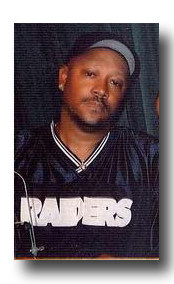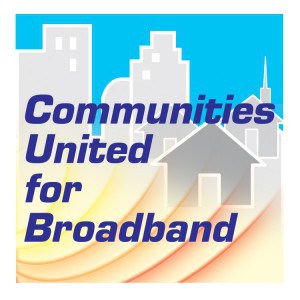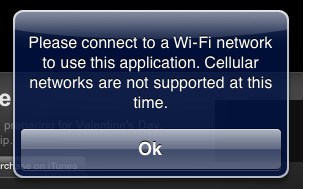It’s gratifying to know we are not alone in recognizing the parade of minority interest groups on the dole of big telecom companies who are only too willing to parrot their talking points to strike down pro-consumer broadband reform.
Davey D, a journalist, educator, columnist and Hip Hop activist originally from the Bronx who now lives and works in Oakland where does a daily radio show – Hard Knock Radio (KPFA 94.1 FM) is pondering why so many groups are so willing to sell out their constituents:
One of the strategies used by AT&T was to go to communities of color, find Civil Rights organizations and in my humble opinion and pay for their silence or advocacy. The list ranged from LULAC to the Urban League which filed briefs siding with the FCC. It makes no sense why organizations which have long spoke about not having voice their voices heard and a seat at the table would go along with any sort of policy that strip that away from the average person who found such an opportunity via the Internet.
Was having sponsorship dollars for the next awards banquet payment enough? Or a some computers for an after school program payment enough? We’re talking about intelligent people here. It would be absolutely trifling to sell out for something that low and glaringly obvious.
Stop the Cap! exchanged views last week with one such “coalition of the willing to take the check” that claims to represent the interests of Latinos, but won’t answer basic questions about how much they got and from what phone or cable company.
Sylvia Aguilera, representing the Hispanic Technology and Telecommunications Partnership, which itself is made up of several groups cashing AT&T’s checks, chided me for my earlier remarks, “HTTP supports reasoned dialogue on the issues and remains dismayed by those, like you, who stoop to categorizing esteemed minority organizations as “astro-turf’. You will gain no allies in our communities with this strategy.”
Our response was to ask Aguilera to come clean on whether HTTP was also getting AT&T money and how much. No response. That speaks volumes, of course. Aguilera makes the mistaken assumption that groups that actually represent consumers are interested in allying themselves with “dollar a holler” advocacy groups like those that make up the HTTP. Latino readers of Stop the Cap! wondered where HTTP was when Time Warner Cable was testing Internet Overcharging schemes on their Road Runner service in Austin and San Antonio, Texas. Unlike so many Net Neutrality foes in the not-for-profit community, Stop the Cap! doesn’t take industry money and is 100 percent supported by individual consumers.
Our contention is reasonable dialogue is impossible on telecommunications issues when some of that speech is bought and paid for by AT&T. In other words, HTTP and its coalition members’ views on this specific issue are nothing more than astroturf and won’t carry much legitimacy in the eyes of consumers as long as AT&T is still cutting them checks. Return the money, refuse to accept contributions that represent a conflict of interest on public policy debates, and then the reasoned dialogue can actually begin.
Now does this mean these kinds of groups do no good? Of course not. I’m sure they have projects that are valuable and important to their respective community interests. But having come from the non-profit sector myself, I am also well aware of what some groups are willing to do to raise funds, and they aren’t fooling me for a second, nor should they you.
Davey D sums it up:
Below is a list of Civil Rights orgs that submitted files to the FCC saying they wanted to have the internet DEREGULATED. When your s*it starts slowing down, your message filtered or censored, your music hard to access and more importantly your fees go up, give these esteemed organizations and people a call and ask them how they intend to correct what will go down as a egregious error. Maybe they can let you use their accounts cause I’m certain in exchange for siding with these big telecoms they got a few perks including unfettered and fast lane access.
Here are recent anti-Network Neutrality filings by organizations of color
(There are more and I will post them later.)
Urban League Chapter
Click to access 7020408309.pdf
Click to access 7020400790.pdf
Click to access 7020400568.pdf
Click to access 7020408157.pdf
Click to access 7020400510.pdf
National Lesbian and Gay Chamber of Commerce
Click to access 7020408718.pdf
Hispanic Federation
Click to access 7020408716.pdf
LISTA
Click to access 7020408720.pdf
Latino community Foundation in San Francisco
Click to access 7020408354.pdf
Native Americans
Click to access 7020408711.pdf
Click to access 7020408291.pdf
Click to access 7020408712.pdf
Click to access 7020408709.pdf
Click to access 7020408717.pdf
Click to access 7020408708.pdf
Click to access 7020408713.pdf
NAACP in California
Click to access 7020408307.pdf
Rainbow Push
Click to access 7020408211.pdf
Texas State Rep. Robert Alonzo
Click to access 7020408179.pdf
MANA, A National Latino Organization
Click to access 7020400566.pdf
100 Black Men of South Metro
Click to access 7020400798.pdf
100 Black Men of Mobile
Click to access 7020401015.pdf
100 Black Men of Greater Mobile
Click to access 7020401015.pdf
ASPIRA
Click to access 7020400339.pdf
100 Black Men of Tennessee
Click to access 7020400506.pdf
100 Black Men of Orlando
Click to access 7020400502.pdf
HTTP
Click to access 7020400970.pdf
Hispanic Interests Coalition of Alabama
Click to access 7020401020.pdf
SER: Jobs for Progress
http://fjallfoss.fcc.gov/ecfs/document/view?id=7020400060
NAACP Mar-Saline Branch
Click to access 7020399888.pdf
Japanese American Citizens League
Click to access 7020399819.pdf
Organization of Chinese Americans
Click to access 7020399334.pdf
Asian Pacific American Institute for Congressional Studies
Rep. Yvette Clarke
https://ecfsapi.fcc.gov/file/7020399667.pdf


 Subscribe
Subscribe









